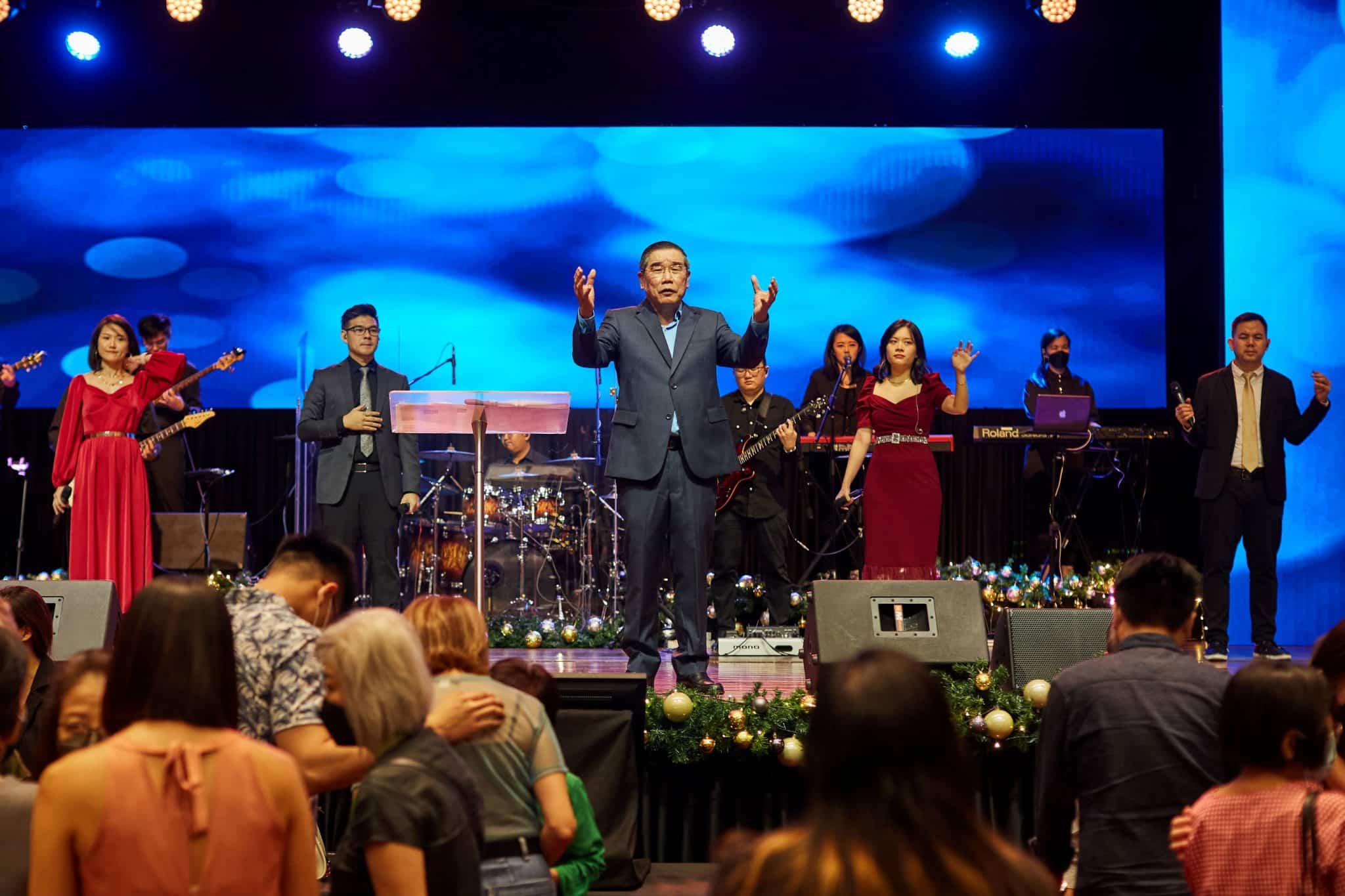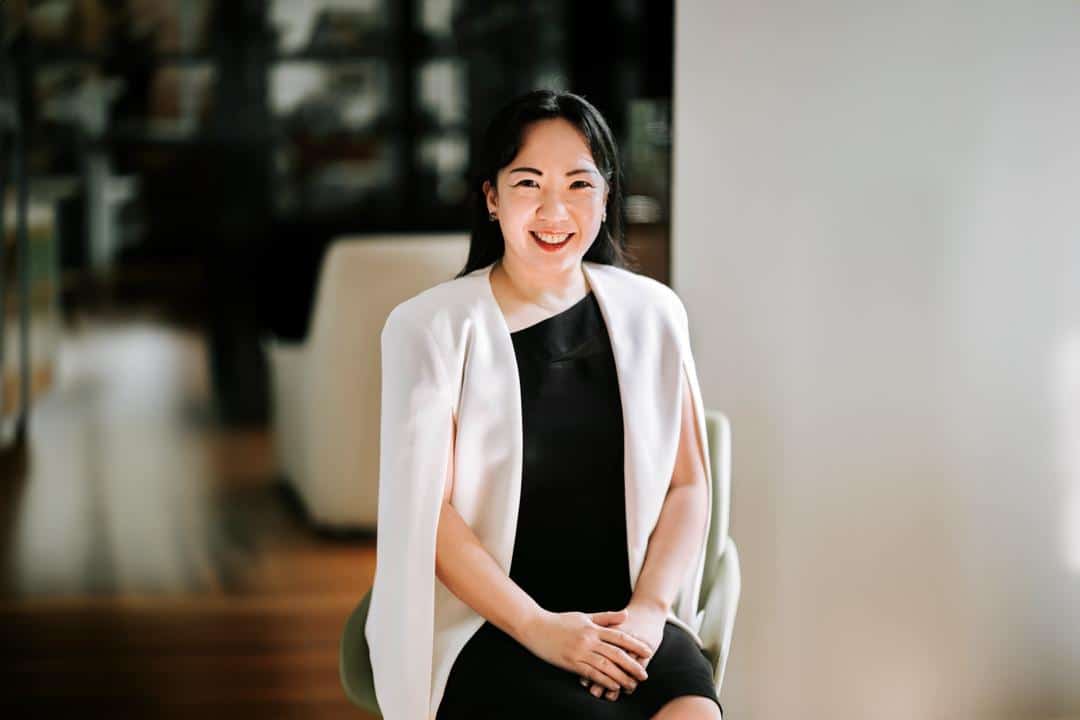Have mercy even when you want to punish someone, says Pico’s group president James Chia
by Rachel Phua // September 17, 2019, 2:02 pm
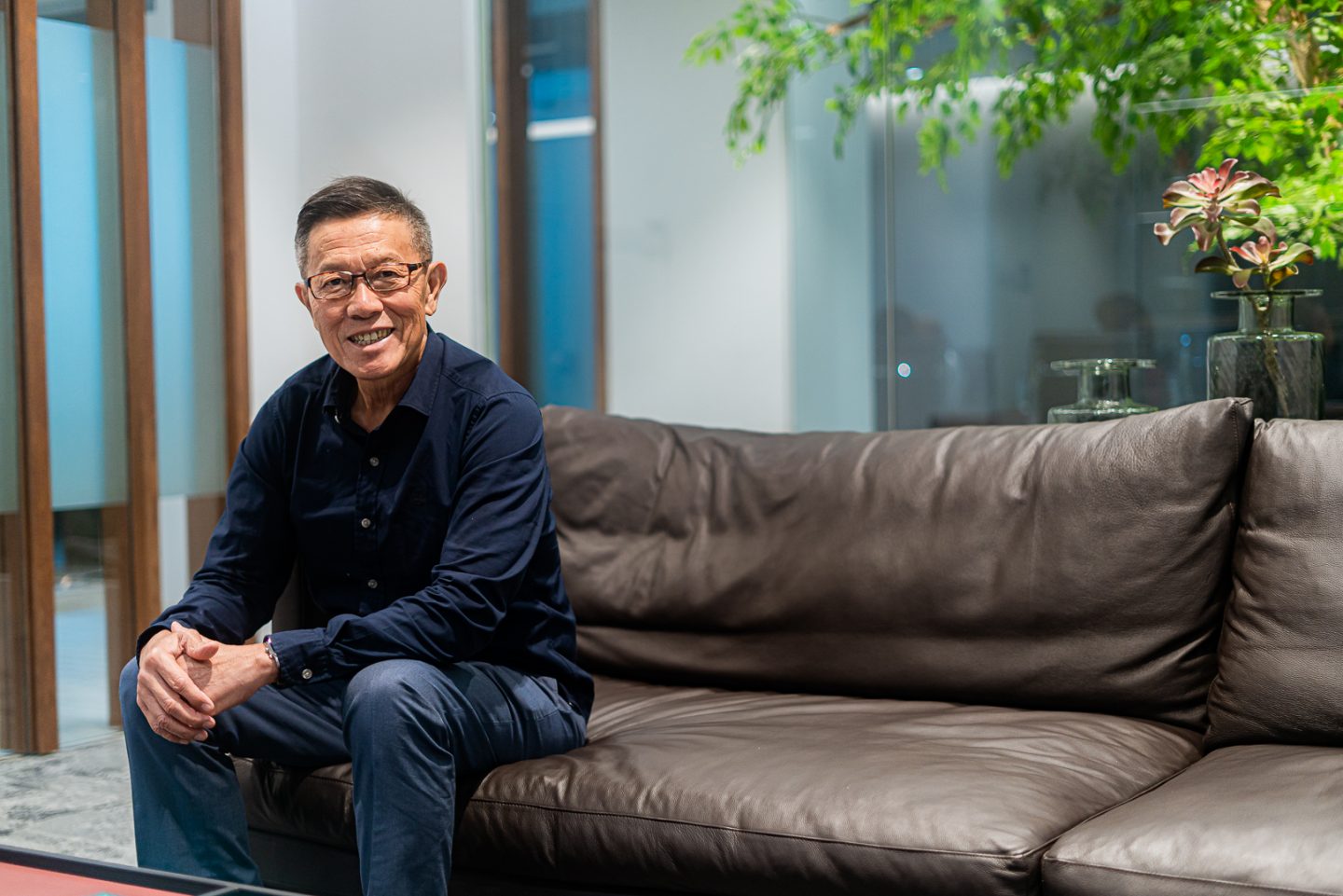
James Chia is the group president of Pico Far East Holdings, a multi-national events management and marketing company known for creating brand signages and building large-scale exhibitions. Photo by Rachel Phua.
Pico Far East Holdings is a multi-national company that grew from a small sign-making business in 1969 started by Chia Siong Lim, or SL Chia, into an events management and marketing industry giant with 37 offices worldwide and 2,000 employees in total.
James Chia, 67, is one of Pico’s stalwarts, having joined his brother in 1974 after National Service to run this business as a family. He is one of the seven Chia brothers (out of nine) that helm the company in various roles; James himself is Pico’s group president.
On the company’s – and family’s – rags-to-riches story, Chia attributes it to God’s grace, even though those who are Christians came to faith only later in life. Still, the success of Pico, or James, didn’t happen overnight.
As we prayed, there was a supernatural manifestation.
Chia, who says his family grew up in poverty, and his brothers would work seven days a week, spending Mondays to Saturdays producing the signages and negotiating with clients. Even Sundays were spent in the art studio, coming up with original signage designs they could present to the clients together.
Today, while Pico still creates signage for a wide range of brands such as Rolls-Royce and Hilton, the bulk of its activities lies in running exhibitions all over the world, from the China International Import Expo to the i Light Singapore festival right here on our shores.
The company, which had a revenue of HKD4.6 billion (about SGD800 million) in 2018, has been listed on the Hong Kong Stock Exchange since 1992.
Though Chia was part of the family – fifth among the 10 brothers to be exact – he had to work his way up gradually as an apprentice, office boy, sales executive and then into management positions.
Salt&Light spoke to Chia on how his faith has shaped his view of work and company values.
Q: How did you become a Christian?
Chia: When I turned 40, I thought I had already made it.
I had a happy family, a stable business, a good wife and children, far from poverty. But when I thought I had everything, my heart felt empty.
At the same time, I asked myself questions like “where am I going after I die”or “who is going to look after my family”. So I started searching and when some friends shared with me about their visions of visiting heaven and coming back, I began to believe that God exists.
But when I thought I had everything, my heart felt empty.
My problem then was: “Which God?” As my wife and I explored various religions, my seventh brother, Henry Chia, was diagnosed with stomach cancer. He was based in Hong Kong running a business, and I called him to tell him I could find him the best hospital and doctors in the world. But his reply was: “I just need you to pray.” He sounded absolutely calm, and worship music was playing in the background.
I was stuck. I didn’t know how to pray.
My brother, SL Chia, organised a meeting one evening where some of the brothers, my wife, Henry’s friends and a pastor could pray for him. I had never participated in any Christian prayer meeting before.
As we prayed, there was a supernatural manifestation. I was holding my wife’s hand, but, midway, she felt as if she was holding on to a giant pair of hands – like it was God holding her hands. She was completely at peace during that time too. After she shared with the rest who were present, we immediately professed to accept Christ.
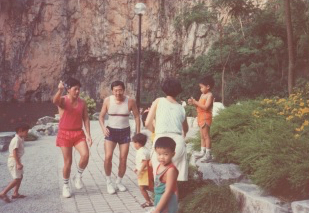
James (in red) and Henry exercising at the Bukit Batok Nature Park in 1971. Photo courtesy of James Chia.
More than his work, Henry really left a legacy of bringing people to Christ. It wasn’t just my wife and I that changed because of him. Even today, I still meet people who tell me that their lives have been touched by Henry’s love. One colleague who recently became a Christian told me that it was Henry who gave him a Bible.
Henry died at the young age of 38. But I believe that he accomplished what God assigned to him on earth. His death has produced many seeds (John 12:24).
Q: How did becoming a Christian change the way you saw your role at Pico?
Chia: Before becoming a Christian, I was always trying to equip myself by reading a lot of management books and attending business seminars.
As I started attending church and cell group, I found out a lot of management theory could be found in the Bible, and there was the Holy Spirit who would help me. I could also pray to God and ask for wisdom, and there would be hope and peace as well.
In terms of what the faith has taught me, it is that as humans, you can only do so much. You submit everything to God and leave it to Him to make a decision. The project could be a success, or it could not.
Sometimes, God uses a rough patch to teach us a lesson.
But I hold on to Romans 8:28. I may feel sad if I lose a contract, but I know there is always a purpose behind it.
Sometimes, God uses a rough patch to teach us a lesson too.
Right before the 1997 Asian Financial Crisis, each of us Chia brothers had bought a house.
Then when the storm hit, a French bank and a German bank that were financing our exhibition halls in Vietnam and Sri Lanka respectively told us that they were going to stop financing these projects.
I had to mortgage my house so that Pico could keep the exhibition halls. At the same time, we had to sell some of our private businesses at a lower price.
The fact that my family and I could end up homeless scared me, although we managed to pull through the crisis unscathed. I think God used the episode to teach us brothers that we shouldn’t be over-leveraged and rely on bank loans to sustain the business.
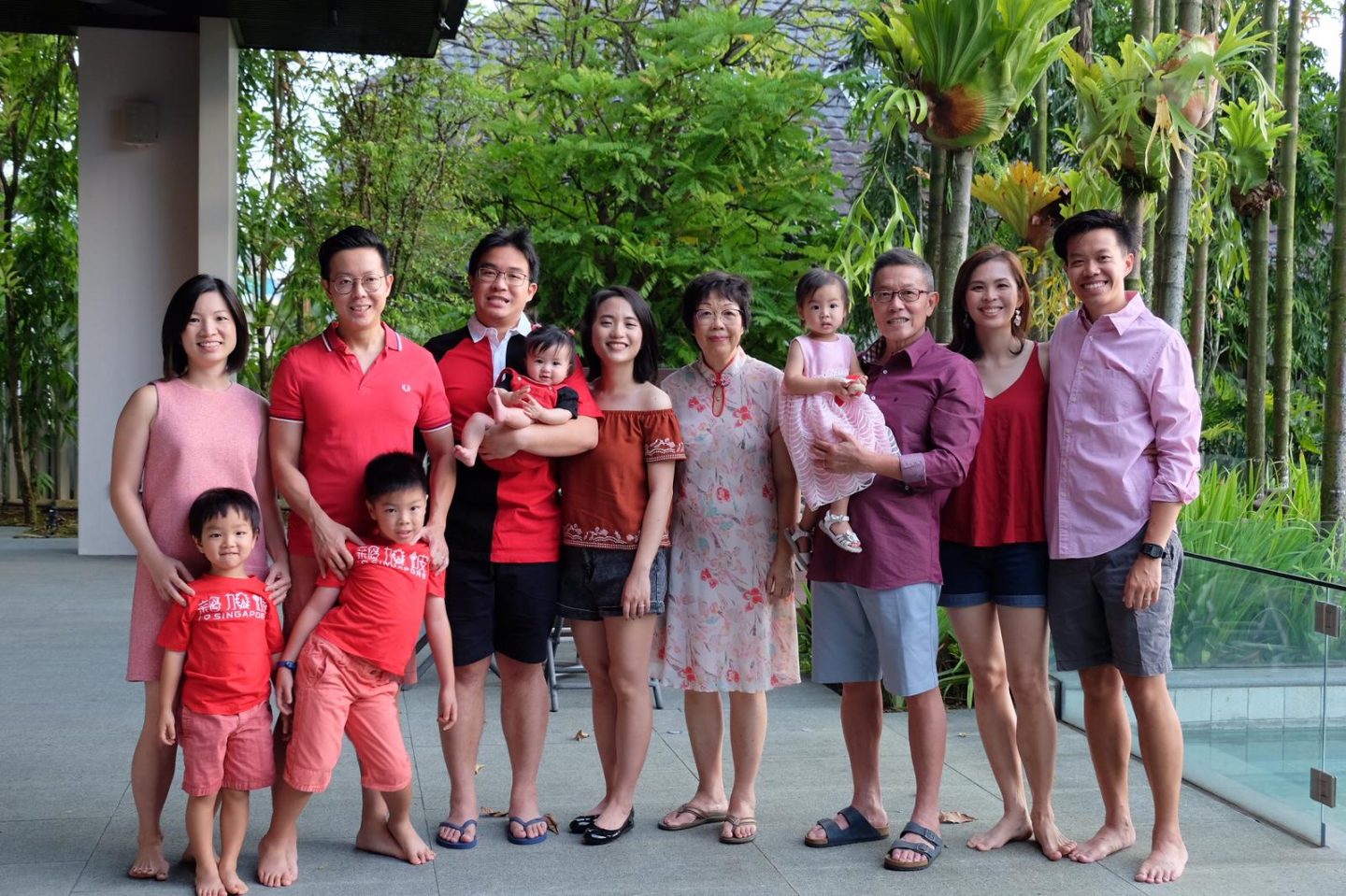
James and his wife Chow Woon Yeow (fifth from the right) with their family. Photo courtesy of James Chia.
I was very much task-oriented and had a disciplinarian-like disposition before I became a Christian. These were practices I learnt from the army. But after accepting Christ, I had to add the element of mercy in whatever I did.
The Lord tells us to act justly, but also to show mercy (Micah 6:8). If someone in the company makes a mistake, I’d want to punish them.
But when I think about the call to show mercy, I tell myself: “That man has a family to support. Okay lah, I give him one more chance.” And I think they know I can offer mercy, but they cannot take it for granted, so the mistake is not repeated.
Q. You are part of Pico’s executive suite. How do you try to remain down to earth and relatable to the staff?
Chia: Staying relatable doesn’t come overnight. It’s part and parcel of your way of life, built on your character when you’re young.
Because my family was poor, we had to rely a lot on our neighbours. So today, I still treasure relationships.
I believe there are three great temptations in life. One is power, one is wealth and the last is sexual. You just have to always been on guard – read the Word, pray, surround yourself with godly people. We have a prayer meeting every Friday in the Pico boardroom, and I join it and make myself accountable through it.
What do you think is the purpose of life?
Chia: I think it’s important to leave a legacy for future generations – whatever godly values and characteristics you’ve picked up that you want to pass down.
I learnt a lot of things growing up poor. For example, how important unity in the family is. But the future generations may not have the experience of being poor, so they don’t learn the virtues that come with enduring poverty.
I can give my children everything, but the only thing I can’t give to them is the journey I went through. So I want them to take what I’ve taught them to become better people.
Far East Organization’s Philip Ng on learning to be a servant CEO
We are an independent, non-profit organisation that relies on the generosity of our readers, such as yourself, to continue serving the kingdom. Every dollar donated goes directly back into our editorial coverage.
Would you consider partnering with us in our kingdom work by supporting us financially, either as a one-off donation, or a recurring pledge?
Support Salt&Light